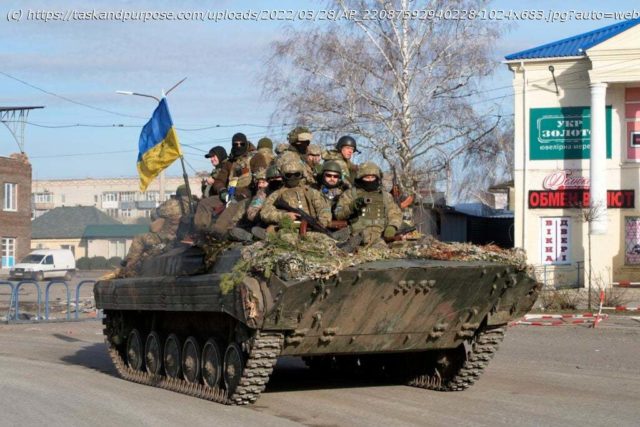No amount of disinformation can convince the losing side that they’re winning, or win the battle on the ground for them.
It’s been just over a month since the beginning of Russia’s invasion of Ukraine, a large-scale modern war that is being live-streamed, minute by minute, battle by battle, death by death, to the world. In this short timespan, the conflict has possibly become the most documented war in human history, and is, perhaps, the greatest example of information warfare techniques used online and through other communicative means the world has ever seen. A month into the invasion, the Ukrainian military has performed better than expected, surviving the initial Russian push. A second, more static phase seems to have begun, as noted by the Institute of the Study of War, “a condition in war in which each side conducts offensive operations that do not fundamentally alter the situation.” Just as surprising as the current state of the ground war is how Ukraine has adeptly defended against Russian information warfare efforts. The current debate now is whether Ukraine has gone even further and achieved supremacy in the information domain; this is a reality that a month ago seemed unlikely, as Russia’s use of information and hybrid warfare to achieve its strategic objectives was regarded as vastly superior to that of Ukraine’s. The tables have turned. It’s also clear that Ukraine is engaging in propaganda to highlight its military successes, rather than its failures. Information doesn’t exist in a vacuum, however, and any praise or critique of the Ukrainian information warfare effort should consider that it is their current successes on the ground that are leading to victories in the information domain. Information is a battleground fought by exploiting ethnic tensions, spreading disinformation, jamming communications, infiltration, and creating narratives through selective photos, video clips and news releases presented in such a way as to garner sympathy and solidarity from the rest of the world, while inspiring fear and sewing chaos in the mind of the enemy. Masters of this form of warfare use stereotypes, deeply held beliefs, and cultural ideas to prey upon their enemy’s weaknesses. This dark art goes well beyond communication on the internet and the stretching of the truth; it contains interconnected techniques in the physical and information domains. Like other forms of warfare, violence is inherent in the concept. Physical results are the best way to win a war of narratives, and the use of social media by Ukraine demonstrates a deep understanding of how the physical, informational, and cognitive domains are connected. Russia’s influence campaign, meanwhile, is having trouble due to its current lack of strategic and tactical success in the invasion thus far. These information warfare failures are in direct contrast to the hybrid warfare techniques that the Russian military displayed during their invasion of Ukraine in 2014 and elsewhere.






